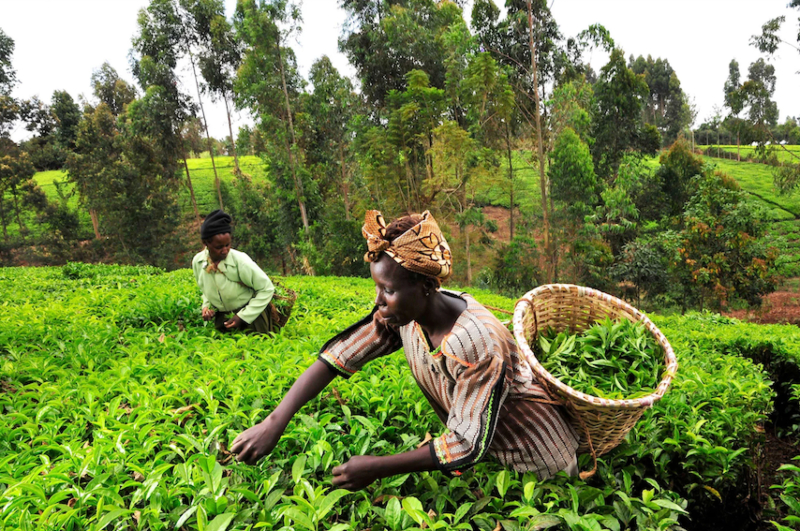

The ongoing negotiations for a free trade agreement between the United States and Kenya have once again highlighted Africa's lack of strategy in dealing with major powers.
While the agreement has been touted as a win for Kenya's economy, there are concerns about its potential impact on regional integration and the Africa Continental Free Trade Area (AfCFTA).
This blog will use the framework of Catholic Social Teaching, particularly Pope Francis' writings and thought, to analyse the fair trade issues, environmental concerns, enforcement of labour standards, intellectual property rights, and social justice concerns raised by the US-Kenya free trade agreement.
Fair Trade Issues
One of the key principles of Catholic Social Teaching is the promotion of fair trade. Fair trade ensures that producers receive fair prices for their goods and that workers are treated justly. However, civil society groups have expressed concern that the US-Kenya free trade agreement does not address this principle adequately. The agreement is expected to benefit the US economy more than Kenya's economy, as the US has a much larger market and can easily flood the Kenyan market with its goods. This could lead to the marginalisation of local producers and traders and ultimately, a loss of revenue for Kenya's economy.
The Environment
The Catholic Church recognises the importance of caring for the environment, as reflected in Pope Francis' encyclical "Laudato Si'". Again, civil society groups are concerned that the US-Kenya free trade agreement does not prioritize the protection of the environment. It is feared that the agreement's focus is primarily on promoting trade between the two countries, without any consideration for the environmental impact. This is particularly concerning given Kenya's fragile ecosystem and its vulnerability to climate change.
Enforcement of Labour Standards
Catholic Social Teaching promotes the protection of workers' rights, including fair wages, safe working conditions, and the right to form unions. However, there are concerns that the US-Kenya free trade agreement does not prioritise the enforcement of labor standards. The agreement does not contain any provisions to ensure that workers' rights are protected, leaving them vulnerable to exploitation by multinational corporations.
Intellectual Property Rights
The US-Kenya free trade agreement prioritises the protection of intellectual property rights. This means that multinational corporations can use their patents and trademarks to control the production and distribution of goods, thereby limiting competition. This can have a negative impact on Kenya's economy, as local producers may not be able to compete with multinational corporations that have the resources to protect their intellectual property.
Undermining the goals of regional integration and of the AfCFTA
The US-Kenya free trade agreement raises social justice concerns, particularly in relation to regional integration and the AfCFTA. The agreement could undermine regional integration efforts by creating a bilateral agreement between the US and Kenya, rather than a multilateral agreement that includes other African countries. This could lead to a fragmented African market, which would undermine the goals of the AfCFTA. Additionally, the agreement could create a situation where Kenya becomes a hub for US goods, thereby eroding the economic power of other African countries.
In conclusion, the US-Kenya free trade agreement highlights Africa's lack of strategy in dealing with major powers. The agreement does not adequately address the principles of fair trade, the protection of the environment, the enforcement of labour standards, and social justice concerns. The Catholic Church's teachings, particularly those of Pope Francis, provide a framework for analysing these issues and highlighting the need for a more just and equitable approach to trade between countries. It is important for African countries to prioritise their own interests and to ensure that any trade agreements they enter into are in line with their development goals and priorities.
Related Articles
Select Payment Method
Pay by bank transfer
If you wish to make a donation by direct bank transfer please contact Fr Paul Hamill SJ treasurer@jesuits.africa. Fr Paul will get in touch with you about the best method of transfer for you and share account details with you. Donations can be one-off gifts or of any frequency; for example, you might wish to become a regular monthly donor of small amounts; that sort of reliable income can allow for very welcome forward planning in the development of the Society’s works in Africa and Madagascar.
Often it is easier to send a donation to an office within your own country and Fr Paul can advise on how that might be done. In some countries this kind of giving can also be recognised for tax relief and the necessary receipts will be issued.

